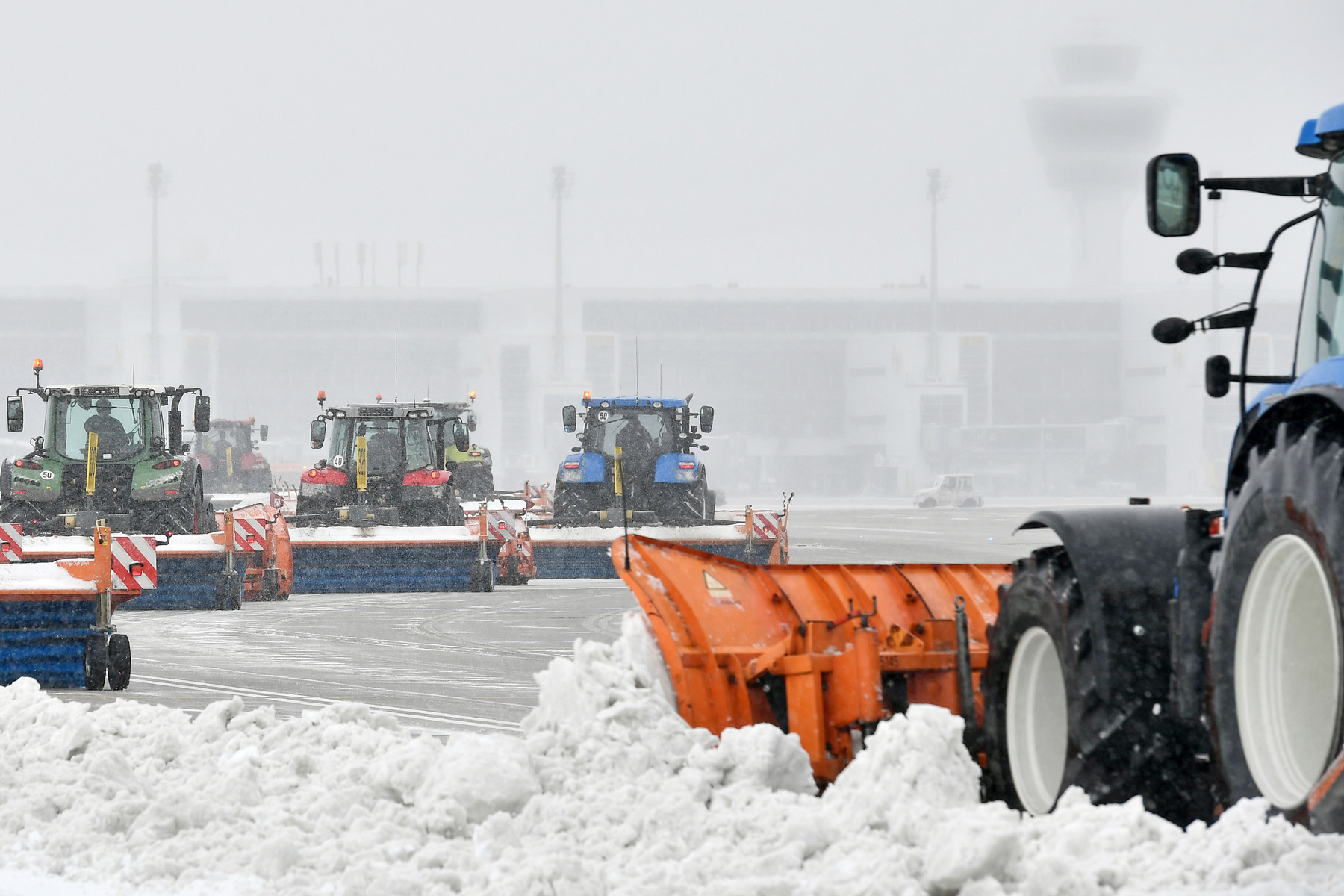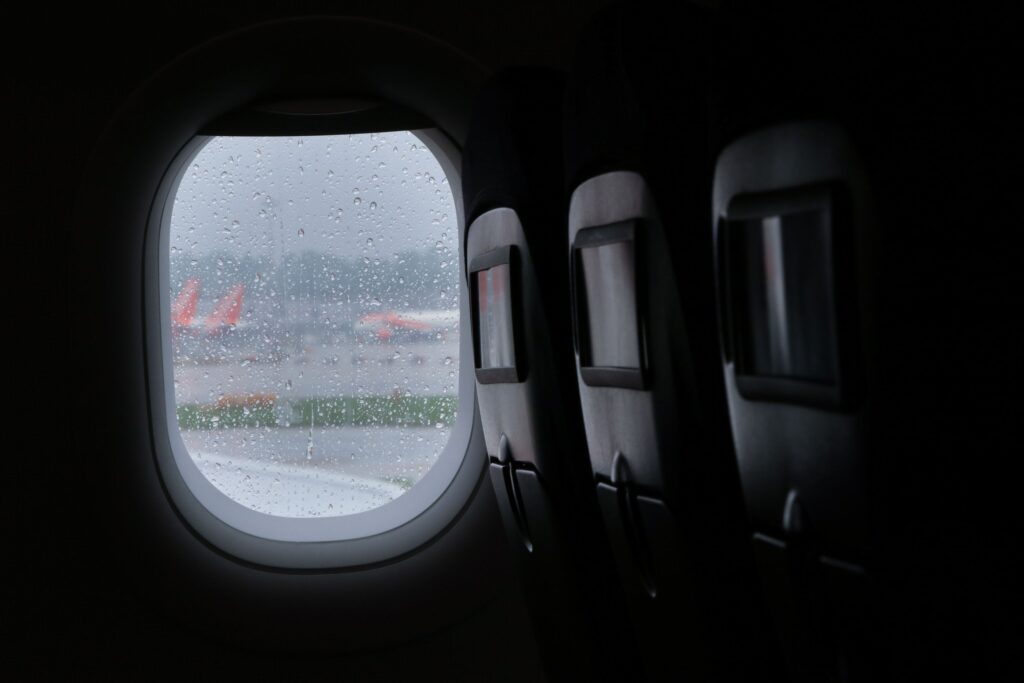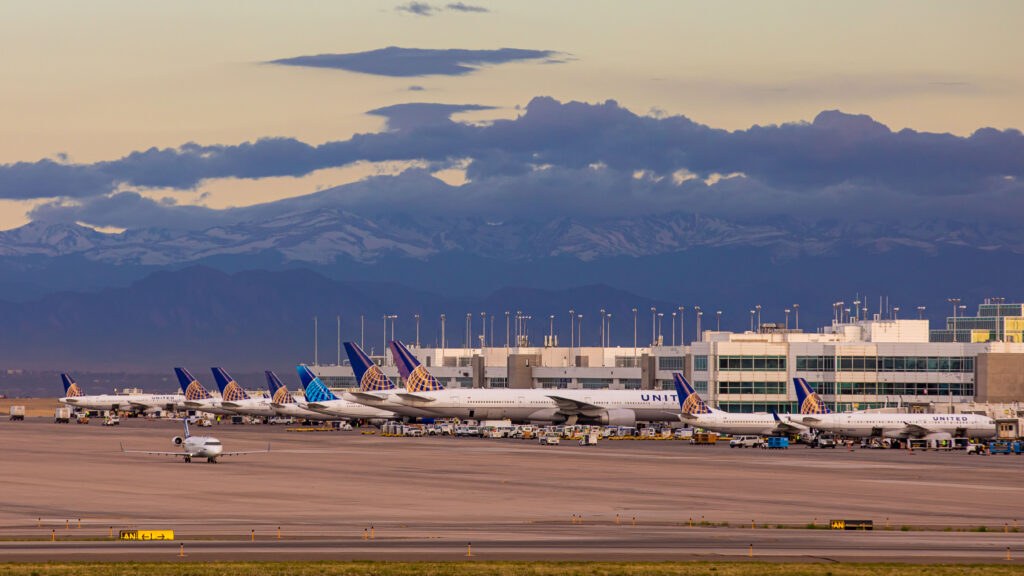Winter Storms and 737 MAX 9 Grounding Cause Travel Chaos
More than 800 flights were canceled on Sunday as extreme weather added to the disruption caused by the Boeing 737 MAX 9 grounding
by Fergus Cole
January 9, 2024

Photo: Courtesy of Munich Airport
Over the weekend, two winter storms across the U.S. have caused hundreds of flights to be canceled or delayed, with the Northeastern Coast and Great Plains the two most affected regions.
The first storm, which affected large swaths of the East Coast from North Carolina up to Maine, brought over a foot of snow to parts of Upstate New York and Massachusetts. While New York City and its airports were spared from the worst of the weather, mostly receiving just rain, Boston Logan International Airport (BOS) was particularly affected by snow and ice.

Southwest Airlines winter weather operations in Dallas Love Field / Photo: Stephen M. Keller, 2021
Meanwhile, another major storm affected large parts of the Western U.S., stretching from Arizona to Illinois and causing blizzard warnings in New Mexico and Colorado. Flight disruption was seen at many Western and Midwestern airports on Sunday and Monday, with Seattle Tacoma International (SEA) and Chicago O’Hare (ORD) the worst affected.
According to FlightAware data, 837 flights within, into, or out of the U.S. were canceled on Sunday, while 7,612 flights were delayed. Disruption continued into Monday, with more than 430 flights canceled and more than 1,200 delayed as of 11 a.m. EST.
The worst affected airport on Sunday, Boston Logan, had 110 inbound flights canceled, around 22 percent of its entire schedule. It also had 262 inbound flights delayed, representing over half (53 percent) of its schedule. Meanwhile, 15 percent of outbound flights were canceled, and 42 percent were delayed. Seattle-Tacoma International, Chicago O’Hare, and Newark Liberty International Airport (EWR) also experienced significant disruption.

Photo: Courtesy of Nivenn Lanos / Unsplash
Last week, most major U.S. airlines issued waivers on flight changes in anticipation of the adverse weather, with varying conditions, including American Airlines, United Airlines, Delta Air Lines, Southwest Airlines, and JetBlue.
However, it’s not just extreme weather causing flight cancellations over the weekend; the grounding of Boeing 737 MAX 9 aircraft after the Friday Alaska Airlines flight incident also played a key role. A part of the fuselage on Alaska Airlines flight 1282 from Portland International Airport (PDX) to California’s Ontario International Airport (ONT) blew off just minutes after take-off, forcing the flight to land immediately at PDX.
Thankfully, no one was harmed during the incident, but it resulted in the Federal Aviation Authority (FAA) grounding all Boeing 737 MAX 9s pending an investigation. This caused significant disruption to Alaska Airlines and United Airlines, with Alaska canceling 21 percent of its flights on Saturday and Sunday. United, meanwhile, canceled 260 flights on Sunday, or 9 percent of its entire schedule.

United Airlines aircraft / Photo: Courtesy of Denver International Airport
To further compound misery for travelers this weekend, a major baggage handling system failure at Denver International Airport (DEN) on Sunday caused even more disruption to hundreds of flights. Overall, it’s not been a great start to the year for the airline industry in the U.S., and carriers will be hoping to turn things around quickly following a relatively successful 2023.




